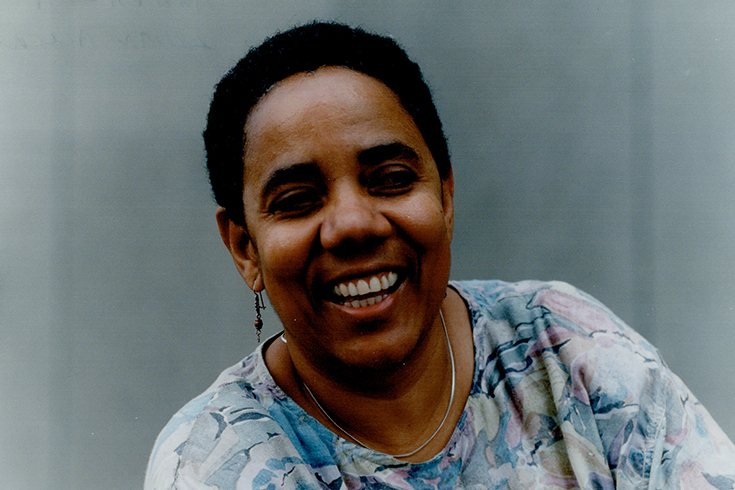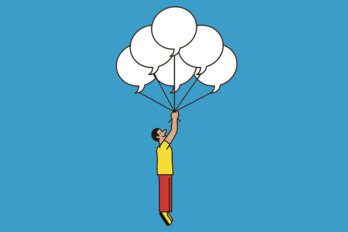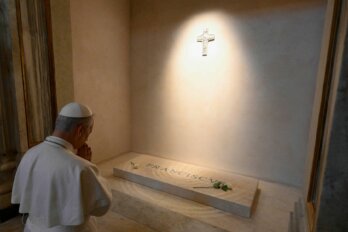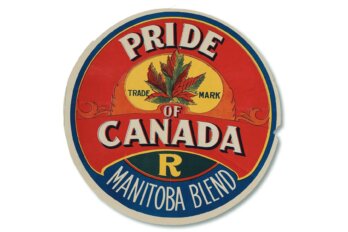There is a certain sound a raised voice can make, a raw and elemental tone that, at its most refined, exceeds the artist. I call it the sufferation tone. Well delivered, it is intense without being histrionic. Approached with insincerity, it rings hollow, and listeners immediately detect the artifice. But, if expressed from a place of genuine anguish, it can give voice to both joy and tragedy.
Great singers can produce the sufferation tone, but it is dub poets who locate it at the heart of their work. Dub evolved out of Jamaica’s reggae culture roughly fifty years ago. To dub is a recording term that roughly means to transfer audio from one medium to another, and in the case of dub poetry, the term describes a popular art form where poems are performed using words that feel like they have been imprinted on, or stamped into, an instrumental background. Incorporating reggae’s rhythms (or “riddims”) and drawn from the Jamaican language, dub poetry grapples with the legacies of enslavement while exploring the injustice and inequality of everyday life. Oku Onuora, who grew up in Kingston, is credited with being among the first to experiment with combining music and protest lyrics, which he did while in prison for armed robbery between 1970 and 1977. (According to legend, he had attempted to redistribute funds from a post office to an impoverished youth centre.) Onuora could deliver poems as a growl of fury or a howl that doubled as a battle cry. Among the poets he inspired was someone also able to shift effortlessly from lamentation to threat to celebration: Lillian Allen.
Allen became a fixture in Toronto during the 1980s, when she headlined events for antiracist and women’s movements. Now seventy, her voice is still versatile in terms of the sounds it produces. But, beyond sounds, Allen is capable of great emotional range by drawing on Black historical experience to shape her inflections. We hear this in “I Fight Back,” one of her first and most celebrated poems: “They label me / Immigrant, law-breaker, illegal, minimum wage worker / refugee / Ah no, not mother, not worker, not fighter.” When performing her poetry, Allen can produce a soaring wail that traces the contours of her Jamaican accent, a rhythmic speech that pushes along with the reggae bass line. As it pushes, it insists, decries, and confronts. “Instead of being the doormat,” she writes in another early poem, “get up and be the door.”
The arrow-like precision of Allen’s voice helped fashion a new narrative of who a Canadian artist could be and what they might address. In 1984, Allen was part of a small group of dub poets who tried to join the League of Canadian Poets, a national organization that, for many years, was the face of English-language poetry in the country. Their application was rejected on the grounds that Allen and the others were performers and therefore failed to meet the league’s membership criteria at the time. The group countered that they write poems, but they also perform them, and performance is a form of publishing. They were eventually admitted. The instance of discrimination masquerading as formal artistic distinction marked Allen. The initial rejection suggested that a Black poet who maintains an oral practice cannot really be a poet. Instead of accepting that and practising their art form on the margins of the literary scene, Allen and her contemporaries demanded that the definition change.
Make the World New, published this summer, is a selection of Allen’s most well-known poems going back to her poetry debut, Rhythm an’ Hardtimes (1982). While editor Ronald Cummings insists, in his introduction, that his choices should not be read as “definitive,” the book also works as a primer for an expanded field of artistic practice. For Allen, the writer does not reside outside of a community. They become performer, voice at political rallies, historian, media commentator, recording artist, grassroots arts organizer. If we consider other Black writers of the same generation, such as M. NourbeSe Philip, Dionne Brand, or the late poet Claire Harris—writers who represent an astonishing collective output that includes novels, experimental poetry, essays, documentaries, and short fiction—a broader picture emerges. We encounter a group of women who have fought for the right to be publicly creative.
Today, scores of Black writers are being published in Canada. In British Columbia, Alberta, the Maritimes, Quebec, new voices are emerging to address the realities of global migration, the effects of climate change, and the biases in constructions of national belonging. They are working in poetry, fiction, memoir, and other, hybrid genres. This watershed moment for Black writing in Canada has been decades in the making. It owes a debt to Black women writers from the Caribbean. Make the World New can help show why.
Allen was born in Kingston, Jamaica, in 1951. She moved to Kitchener in 1969, then spent several years between Toronto, New York, and her birthplace, three hubs of Black diasporic life, studying and moving in arts and activist circles. Of her early interest in poetry, she told me, “I started writing poetry in high school, and it lifted off the page.”
The poetry continued to lift, both nationally and in the United States, to large folk festivals and women’s festivals. Allen’s first record, Revolutionary Tea Party, which was released in 1986 and won a Juno award, charts an unusual course for a Canadian poet. Allen’s earliest successes did not come as a result of publishing books. They came through recordings. Her second album, Conditions Critical, released in 1988, also won a Juno. Both records have a clean 1980s pop reggae production and are driven by lyrics that tackle social injustices while celebrating community, life, and love—lyrics calling us to embrace, as she puts it in a 2012 recording, “liberation as ritual and art / meaning and message.”
Those early albums were also part of the changing sound of Canada. By the 1980s, reggae and ska had inflected popular music. Bubbling keyboard lines or bass lines that worked in unison with the kick drum were heard in genres as diverse as punk, new wave, and rock. Dub poets, by incorporating the reggae riddim into their lyrics, participated in that moment. Linton Kwesi Johnson emerged in the UK. In Canada, Clifton Joseph, Afua Cooper, and Ahdri Zhina Mandiela shared their work with audiences through recordings, hundreds of performances, publications, and teaching. Their presence was often rooted in Toronto, but their voices reached those of us who lived in the west or the Atlantic provinces via college radio waves, festival circuits, or literary journals. In schools, in public institutions, in private homes, our cultures had often been ignored, even ridiculed. These poets validated us. They gave us a tradition in whose path we could walk. Not only did we understand the language, the expressions, the Caribbeanness of it all, but dub spoke back. It defined itself outside the canons of English literature, and it projected its rebellious aesthetic on the international stage.
Allen articulated that rebelliousness. Her work moved between the page, the stage, and the recording studio. (In one lecture, she defined dub as “multimedia, multi-sensorial, and slightly mashed-up activist poetry.”) Allen also demonstrated how a political consciousness could ground experimentation. I was a preteen when she released her early records. The 1980s anti-apartheid struggle was then reaching a height, as was the struggle to free Palestine from Israeli occupation. Peter Tosh, an outspoken reggae musician, made the keffiyeh a part of his wardrobe in a display of solidarity with Palestine, as did the late dub poet Jean “Binta” Breeze. In those years, dub was invested in political developments abroad, including decrying nuclear war. That context helps us understand Allen’s impact on a generation of poets of colour who grew up attuned to world events while trying to make sense of their place in Canada. As she writes in her afterword to Make the World New, “I delight in the way a cluster of words, a phrase turned ‘jus soh,’ can open the imagination and spark all sorts of connections and things.”
A crucial point made in this selection is that Allen’s work frames local political movements next to global working-class struggles for independence. Her poetry celebrates the 1956 dissolution of the dictatorship in Haiti. It references the 1979 revolution that overthrew Nicaragua’s authoritarian rule. It wonders whether capitalist hegemony could be ended in America. Make the World New carefully places these poems alongside others that dissect the inequalities of Toronto, where “dashed hopes run wild / in the middle of the night.” It’s no surprise to learn, from Cummings’s introduction, that Allen’s poetry was exchanged between community organizers and activists. What they likely heard in her work becomes clear in poems like “Birth,” with its blocks of repetition:
An’ mi labour an’ mi labour
An’ mi labour an’ mi labour
Those two lines equate the struggle to bring a life into the world with the struggle for rights and dignity. Those struggles are, in turn, bound by language. The poem does what it says: it performs the difficulty of articulation. It labours, and in that moment where content and delivery meet, we hear the sufferation tone.
To reflect on Allen’s impact is to reflect on how deep dub’s influence runs. It seasons the vernacular assertiveness of slam poets. It crackles in the lines of spoken word artists who insist that the personal is the political. It peppers the boil of cultural influences that simmered down into Canadian hip hop. As Jamaican poet Kei Miller observed in the online magazine Sx Salon in 2013, the classic dub that rose to global prominence in the 1970s and 1980s may no longer be practised in its purest form by younger poets (“Dub poetry was the voice of a revolution and revolutions do not last forever”), but its aesthetics have shaped the work of artists as distinct as d’bi.young anitafrika, Wayde Compton, and Montreal poet Tawhida Tanya Evanson.
Allen gave my generation a sense of mission. She didn’t instruct us to do what the biblical hymn suggests, to meekly “wait and murmur not.” Instead, to borrow Miller’s description of dub itself, she “taught us that there are times to be angry, indeed, to be furious, and that fury can be composed into a thing of eloquence.” At a time when so many are mounting a rigorous challenge to the legitimacy of societies whose founding gestures include the dispossession of others, the poems in Make the World New still burn with a sense of urgency.





